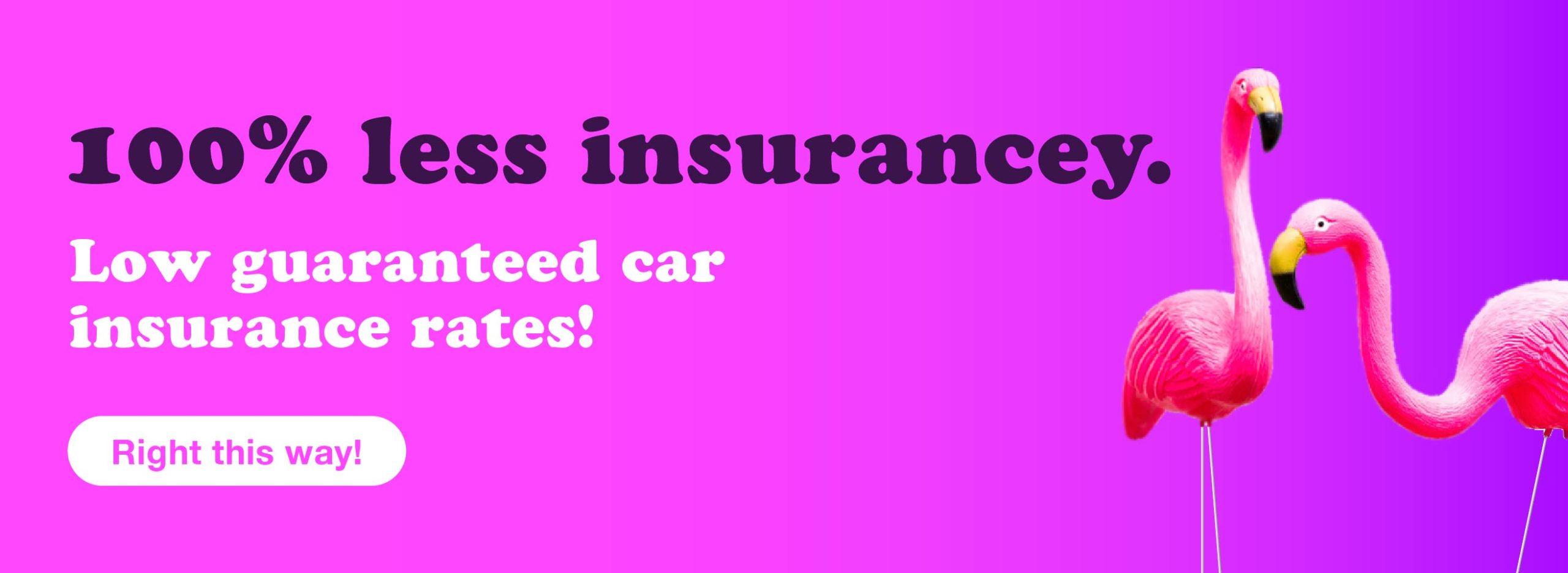Insurance savings tips to make the most of your budget
There comes a point when you’ve squeezed every last drop of savings out of your insurance: you’ve bundled home and auto policies, started driving a less expensive car, and built a clean driving record. Your premium is as low as it’s ever been, and things are going pretty well.
What then?
That’s when you can point your hard-won savings toward the things that really matter in life: security, family, and building the life you want.
Think about investing
Investing is one of the main ways to reach financial independence. There’s a debate about index investing vs. managed investments even among Canada’s prominent money experts, but they all agree on one thing: you need to start as soon as possible.
Einstein supposedly called compound interest the 8th wonder of the world. Who are we to argue? The more time you allow your investments to grow, the more money you’ll have later in life.
In fact, you could become a millionaire through your TFSA alone through reasonable contributions.
So… who wants to be a millionaire?
Work on that college fund
University is expensive, and more students attend these days than ever before (2020 notwithstanding). Even if your child is set to leave the nest in a year or two it’s worth setting aside some money.
If you have more time to save up, all the better—student debt is higher than ever, and you don’t want to shoulder that financial burden on your children.
If you have time to prepare your child for school, then a Registered Education Savings Plan (RESP) is the way to go. You can save money in this kind of registered account without paying taxes on it, which provides tax-sheltered growth alongside the market.

It’s just like investing, except the money goes toward your child’s education instead of paying your monthly bills.
It has a lifetime contribution limit of $50,000, but you might not even need to contribute that much if you can give yourself more time for the funds to grow in the market.
How much will you need? Think of it this way:
- Tuition sits around $5,000 per year
- Textbooks cost around $400 per year
- Meal plans cost around $3,000 per year (on-campus students only)
- Residence costs around $8,000 per year (on-campus students only)
If your student lives on campus, then you’ll need a little over $65,000 to put your child through four years of university. Ouch. You’ll need to contribute a fair amount of money and let it grow for as long as possible.
If your child lives at home throughout post-secondary school, then you’d only need around $22,000 for four years of education. Much more feasible—especially if you have several kids!
Pay down debt
Debts haunts Canadians, who spend 14.9% of their income to pay it off. Making the bare minimum payments will keep you indebted for as long as possible. That’s because compound interest works against you when it’s tacked onto loans instead of working for you on your investments.
It’s sometimes referred to as he “three-headed debt monster”:
- Mortgage
- Vehicles
- Education and childcare
That’s a lot of debt. You can always consolidate debt if you have a lot of loans active at the same time, but if you’re looking to get started on this immediately then you need to identify the loan with the highest interest rate, generally. Pay that down first.
Build an emergency fund
Nobody ever needs an emergency fund until they really need it. Then it becomes stressful. Ever had your day ruined by one of these things?
- Car repairs
- Roof repairs
- HVAC repairs
- Vet bill
- Kid’s field trip
We’ve all had monkey wrenches thrown into our carefully laid plans, and it sucks.
That’s why you need an emergency fund.
Instead of throwing those last-minute expenses onto a credit card and paying 18% interest every month, you could build up that fund to get ahead of the curve. We tend to avoid budgeting for these instances because we don’t know exactly what they’re going to cost (let’s be honest: if we had crystal balls then we wouldn’t need insurance!), but the money still needs to come from somewhere, at some point.
It protects your personal funds from taking unexpected hits, and that takes a lot of stress out of life. We could all use some more peace of mind these days.
Insurance is a pillar of managing your money, but even we know that there are more important things in life: family, retirement, and security are our values too. Get started with these strategies and you’ll be in great shape!
There comes a point when you’ve squeezed every last drop of savings out of your insurance: you’ve bundled home and auto policies, started driving a less expensive car, and built a clean driving record. Your premium is as low as it’s ever been, and things are going pretty well.
What then?
That’s when you can point your hard-won savings toward the things that really matter in life: security, family, and building the life you want.
Think about investing
Investing is one of the main ways to reach financial independence. There’s a debate about index investing vs. managed investments even among Canada’s prominent money experts, but they all agree on one thing: you need to start as soon as possible.
Einstein supposedly called compound interest the 8th wonder of the world. Who are we to argue? The more time you allow your investments to grow, the more money you’ll have later in life.
In fact, you could become a millionaire through your TFSA alone through reasonable contributions.
So… who wants to be a millionaire?
Work on that college fund
University is expensive, and more students attend these days than ever before (2020 notwithstanding). Even if your child is set to leave the nest in a year or two it’s worth setting aside some money.
If you have more time to save up, all the better—student debt is higher than ever, and you don’t want to shoulder that financial burden on your children.
If you have time to prepare your child for school, then a Registered Education Savings Plan (RESP) is the way to go. You can save money in this kind of registered account without paying taxes on it, which provides tax-sheltered growth alongside the market.
It’s just like investing, except the money goes toward your child’s education instead of paying your monthly bills.
It has a lifetime contribution limit of $50,000, but you might not even need to contribute that much if you can give yourself more time for the funds to grow in the market.
How much will you need? Think of it this way:
- Tuition sits around $5,000 per year
- Textbooks cost around $400 per year
- Meal plans cost around $3,000 per year (on-campus students only)
- Residence costs around $8,000 per year (on-campus students only)
If your student lives on campus, then you’ll need a little over $65,000 to put your child through four years of university. Ouch. You’ll need to contribute a fair amount of money and let it grow for as long as possible.
If your child lives at home throughout post-secondary school, then you’d only need around $22,000 for four years of education. Much more feasible—especially if you have several kids!

Pay down debt
Debts haunts Canadians, who spend 14.9% of their income to pay it off. Making the bare minimum payments will keep you indebted for as long as possible. That’s because compound interest works against you when it’s tacked onto loans instead of working for you on your investments.
It’s sometimes referred to as he “three-headed debt monster”:
- Mortgage
- Vehicles
- Education and childcare
That’s a lot of debt. You can always consolidate debt if you have a lot of loans active at the same time, but if you’re looking to get started on this immediately then you need to identify the loan with the highest interest rate, generally. Pay that down first.
Build an emergency fund
Nobody ever needs an emergency fund until they really need it. Then it becomes stressful. Ever had your day ruined by one of these things?
- Car repairs
- Roof repairs
- HVAC repairs
- Vet bill
- Kid’s field trip
We’ve all had monkey wrenches thrown into our carefully laid plans, and it sucks.
That’s why you need an emergency fund.
Instead of throwing those last-minute expenses onto a credit card and paying 18% interest every month, you could build up that fund to get ahead of the curve. We tend to avoid budgeting for these instances because we don’t know exactly what they’re going to cost (let’s be honest: if we had crystal balls then we wouldn’t need insurance!), but the money still needs to come from somewhere, at some point.
It protects your personal funds from taking unexpected hits, and that takes a lot of stress out of life. We could all use some more peace of mind these days.
Insurance is a pillar of managing your money, but even we know that there are more important things in life: family, retirement, and security are our values too. Get started with these strategies and you’ll be in great shape!
Seriously, what else can you do in 3 minutes?
Boil half an egg?
You might like these posts, too.
Meet Shweta
aha extraordinaire
Behind every broker is a tech wiz or two, marketing mavens, culture champions, and financial aficionados. This is one of them, and aha insurance is even more awesome because of it.
Say hello to Windrick!
aha insurance
Behind every broker is a tech wiz or two, marketing mavens, culture champions, and financial aficionados. This is one of them, and aha insurance is even more awesome because of it.
Meet Windrick
aha extraordinaire
Behind every broker is a tech wiz or two, marketing mavens, culture champions, and financial aficionados. This is one of them, and aha insurance is even more awesome because of it.

How are we doing?
How are we doing?








